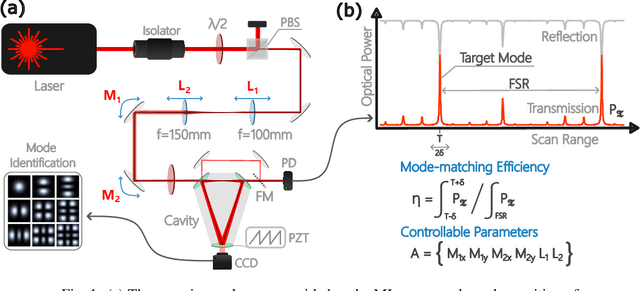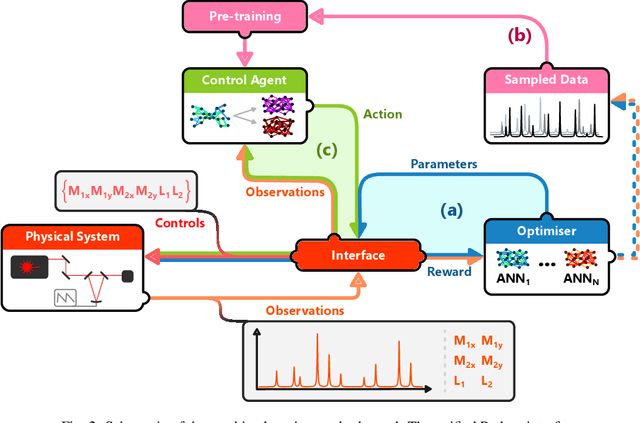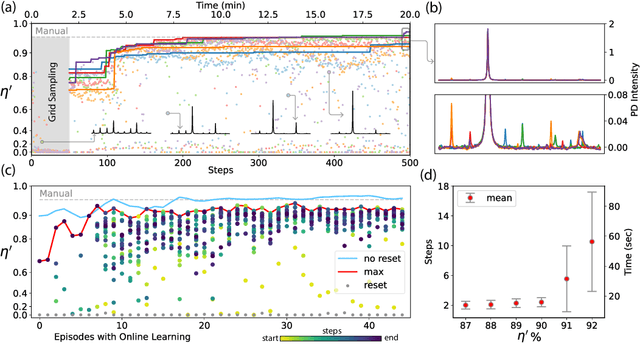Ping Koy Lam
Automating Experimental Optics with Sample Efficient Machine Learning Methods
Mar 18, 2025


Abstract:As free-space optical systems grow in scale and complexity, troubleshooting becomes increasingly time-consuming and, in the case of remote installations, perhaps impractical. An example of a task that is often laborious is the alignment of a high-finesse optical resonator, which is highly sensitive to the mode of the input beam. In this work, we demonstrate how machine learning can be used to achieve autonomous mode-matching of a free-space optical resonator with minimal supervision. Our approach leverages sample-efficient algorithms to reduce data requirements while maintaining a simple architecture for easy deployment. The reinforcement learning scheme that we have developed shows that automation is feasible even in systems prone to drift in experimental parameters, as may well be the case in real-world applications.
Machine Learning Cryptanalysis of a Quantum Random Number Generator
May 13, 2019



Abstract:Random number generators (RNGs) that are crucial for cryptographic applications have been the subject of adversarial attacks. These attacks exploit environmental information to predict generated random numbers that are supposed to be truly random and unpredictable. Though quantum random number generators (QRNGs) are based on the intrinsic indeterministic nature of quantum properties, the presence of classical noise in the measurement process compromises the integrity of a QRNG. In this paper, we develop a predictive machine learning (ML) analysis to investigate the impact of deterministic classical noise in different stages of an optical continuous variable QRNG. Our ML model successfully detects inherent correlations when the deterministic noise sources are prominent. After appropriate filtering and randomness extraction processes are introduced, our QRNG system, in turn, demonstrates its robustness against ML. We further demonstrate the robustness of our ML approach by applying it to uniformly distributed random numbers from the QRNG and a congruential RNG. Hence, our result shows that ML has potentials in benchmarking the quality of RNG devices.
 Add to Chrome
Add to Chrome Add to Firefox
Add to Firefox Add to Edge
Add to Edge